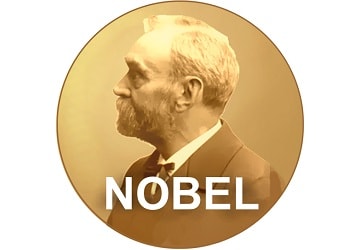
American scientists win Nobel Medicine/Physiology for discoveries about daily bodily rhythms
Three Americans won the Nobel Prize in Physiology or Medicine on Monday for their discoveries about the body's daily rhythms.
This paves the way for opening up whole new fields of research and raising awareness about the importance of getting proper sleep.
Jeffrey C. Hall, Michael Rosbash and Michael W. Young won the 9-million-kronor ($1.1 million) prize for isolating a gene that controls the body’s normal daily biological rhythm.
Circadian rhythms adapt the workings of the body to different phases of the day, influencing sleep, behaviour, hormone levels, body temperature and metabolism.
They were able to peek inside our biological clock and elucidate its inner workings.
Mr. Rosbash is on the faculty at Brandeis University, Mr. Young is at Rockefeller University and Mr. Hall has been associated with the University of Maine.
The winners have raised "awareness of the importance of a proper sleep hygiene.
Period Gene: Know More - The awardees’ work stems back to 1984, when Mr. Rosbash and Mr. Hall, who was then also at Brandeis, along with Mr. Young isolated the “period gene” in fruit flies.
- Mr. Hall and Mr. Rosbash found that a protein encoded by the gene accumulated during the night and degraded during daytime.
- A decade later, Mr. Young discovered another "clock gene."
- The paradigm-shifting discoveries by the laureates established key mechanisms for the biological clock.
- Our wellbeing is affected when there is a temporary mismatch between our external environment and this internal biological clock, for example when we travel across several time zones and experience 'jet lag.
- There are also indications that chronic misalignment between our lifestyle and the rhythm dictated by our inner time keeper is associated with increased risk for various diseases.
- That misalignment may be associated with diseases, including cancer and degenerative neurological conditions.
- Circadian dysfunction has been linked to sleep disorders, as well as depression, bipolar disorder, cognitive function, memory formation and some neurological diseases.
- Last year the prize was won by Yoshinori Ohsumi, a Japanese cell biologist who unpicked the mechanisms by which the body break downs and recycles components of cells – a process that guards against various diseases, including cancer and diabetes.
Nobel Prizes- In total, 107 Nobel prizes for physiology or medicine have been won by 211 scientists since 1901, with just 12 awarded to women.
- Nonetheless, it remains the science award with the highest such tally – so far the physics prize has only been awarded to two women: Marie Curie and Maria Goeppert Mayer.
- From 1901 till this year, Nobel prizes have been awarded 579 times to 911 Laureates and organisations with the youngest winner being 2014 Peace Prize awardee Malala Yousafzai of Pakistan at 17 years.
- By winning the Peace Nobel at this tender age along with India’s Kailash Satyarthi, Ms. Yousafzai beat the previous record of Lawrence Bragg, who won the Physics Nobel in 1915 at the age of 25.
- The word “Laureate” signifies the laurel wreath awarded to winners of athletic competitions and poetic meets in Ancient Greece. In Greek mythology, god Apollo is represented wearing on his head a laurel wreath, a circular crown made of branches and leaves of the bay laurel.
- On 27 November 1895, Alfred Nobel signed his last will and testament, giving the largest share of his fortune to a series of prizes in Physics, Chemistry, Physiology or Medicine, Literature and Peace.
- In 1968, Sweden’s central bank Sveriges Riksbank established The Sveriges Riksbank Prize in Economic Sciences in memory of Nobel.
- At the Nobel Award ceremonies on December 10, the Laureates receive three things: a Nobel Diploma, a Nobel Medal and a document confirming the Nobel Prize amount.
- The Nobel Prize amount for 2014 is set at Swedish kronor (SEK) 8.0 million per full Nobel Prize.
Interesting facts- The average age of all Nobel Laureates in all prize categories between 1901 and 2014 is 59 years.
- Most common birthday month of all the Nobel Laureates is June.
- Since 1901, prizes have not been awarded 49 times, most of them during World War I (1914-1918) and II (1939-1945).
- Leonid Hurwicz has the distinction of being the oldest Nobel recipient at the age of 90 for Economics in 2007.
- Till now, 48 women have won the Nobel while two Laureates declined the prize.
- Jean-Paul Sartre, awarded the 1964 Nobel Prize in Literature, declined it as he had consistently declined all official honours.
- Le Duc Tho, awarded the 1973 Nobel Peace Prize jointly with U.S. Secretary of State Henry Kissinger for negotiating the Vietnam peace accord, said he was not in a position to accept the award, citing the situation in Vietnam as his reason.
- Four Laureates were forced by authorities to decline the Nobel.
- Adolf Hitler forbade three Germans Richard Kuhn, Adolf Butenandt and Gerhard Domagk, from accepting the Nobel Prize. They, however, received the Nobel Prize Diploma and Medal later but not the prize amount.
- Boris Pasternak, the 1958 Nobel Laureate in Literature, initially accepted the Prize but was later coerced by authorities of his native country the Soviet Union to decline the award.
- Three Peace Laureates — Germany’s Carl von Ossietzky, Myanmar’s pro-democracy icon Aung San Suu Kyi and Chinese rights activist Liu Xiaobo — were under arrest at the time of the award.
- The International Committee of the Red Cross (ICRC) was given the Nobel Peace Prize thrice while its founder Henry Dunant won the first Peace Prize in 1901.
- Linus Pauling has the distinction of being the only person to have been awarded two unshared Nobel Prizes — the 1954 Prize in Chemistry and the 1962 Peace Prize.